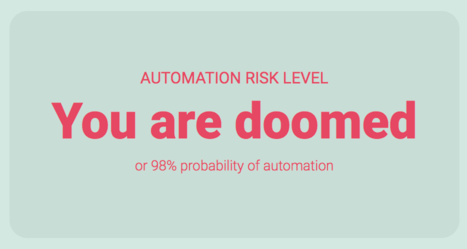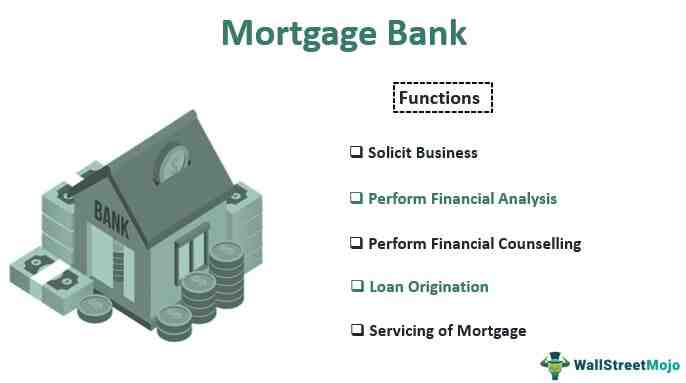How do mortgage agents get clients?
Contents
- 1 How do mortgage agents get clients?
- 2 How do banks profit from mortgage-backed securities?
- 3 Why do lenders sell mortgages?
- 4 How much do banks pay mortgage brokers?
- 5 Where do banks make the most profit?

If you are just starting out as a real estate broker, asking for referrals is one of the easiest ways to get leadership. Asking friends, family and even former co-workers is a great way to introduce new clients to the future. … Providing a customer referral system to reward and encourage referral customers.
How do loan counselors get customers? The 6 Best Ways to Lend Brokers to Get More References within …
- Ask for Reviews and Witnesses. …
- Get references to Social Media. …
- Create and maintain a good customer relationship. …
- Community Projects. …
- Make the Right Partner. …
- Regular Updates Newspapers.
How do banks profit from mortgage-backed securities?

In the CMO payroll, CMO producers will distribute cash to sponsors from a series of classes, called units. Each unit has a guaranteed deposit with maturity and a similar cash flow pattern. … Once the money is paid, investors in the later stages will receive the principal funds.
Who do banks sell their mortgage securities? For example, a mortgage lender may raise $ 10 million in loans. The pool is then sold to a federal government agency such as Ginnie Mae or a government-sponsored company (GSE) such as Fannie Mae or Freddie Mac, or a secure company to use as a new MBS guarantee.
Why do banks buy mortgage-backed securities?
The goal behind MBSs was to allow banks to sell mortgages to raise more money to lend to customers. And the addition of secured securities paves the way for non-bank financial institutions to enter the mortgage business.
What is the benefit of mortgage-backed securities?
MBS-backed mortgage lenders play an important role for investors across fixed income portfolios. Benefits include a cash flow guarantee for US government agencies, a large global security selection, the possibility of risk-return recovery and file diversity.
What does buying mortgage-backed securities mean?
Mortgages, called MBS, are mortgages and other mortgages. They occur when a number of these loans, often with the same characteristics, are brought together. For example, a mortgage lender may raise $ 10 million in loans.
Why do investors buy mortgage-backed securities?
Like most financial innovations, MBS aims to increase returns and risk diversification. With the availability of similar loan pools, investors can absorb the possibility of free-flowing accounts. … The nature of the underlying assets and investment contracts are major risk factors.
How do investors benefit from mortgage-backed securities?
MBS-backed mortgage lenders play an important role for investors across fixed income portfolios. Benefits include a cash flow guarantee for US government agencies, a large global security selection, the possibility of risk-return recovery and file diversity.
Why do investors buy mortgage-backed securities?
Like most financial innovations, MBS aims to increase returns and risk diversification. With the availability of similar loan pools, investors can absorb the possibility of free-flowing accounts. … The nature of the underlying assets and investment contracts are major risk factors.
How do investors make money on mortgage-backed securities?
Loans are sold to institutions such as an investment bank. … When an investor buys a mortgage loan, he basically lends money to home buyers. In return, the investor acquires the value of the mortgage, including interest and the principal payments made by the lender.
What are the advantages to investing in mortgage bonds?
Mortgages offer several benefits to both lenders and lenders. Possessing real estate claims, such bonds lenders have a lower potential loss in the event of a default. Mortgages also allow small borrowers to access large amounts of capital at lower mortgage costs.
How do banks make money from mortgage-backed securities?
Loans are sold to institutions such as an investment bank. … When an investor buys a mortgage loan, he basically lends money to home buyers. In return, the investor acquires the value of the mortgage, including interest and the principal payments made by the lender.
Who owns the most mortgage-backed securities?
Most mortgage support loans are provided by the Government Mortgage Association (Ginnie Mae), a US government agency, or the Federal Loan Mortgage Corporation (Fannie Mae) and the Federal Home Loan Mortgage Corporation (Freddie Mac), businesses that funded by the United States government. .
Why do banks issue mortgage-backed securities?
Basically, loan-backed security turns the bank into a mediator between the home buyer and the investment industry. The bank can lend to its customers and then sell it at a discount to add MBS.
How do banks make money off of mortgages?
Lenders can make money in a variety of ways, including basic fees, extension fees, discount points, closing costs, mortgage securities, and mortgage service. … Lenders can also get money to pay off their mortgage loans and sell MBS.
Why do lenders sell mortgages?

Lenders typically sell out loans for two reasons. The first is to liberate capital that can be used to borrow money from others. The other is to create cash by selling the loan to another bank while protecting the credit service rights.
Is it normal for a loan to be sold? Mortgages are more likely to be sold, and this is not a cause for alarm. You must receive notice by mail both before and after the sale.
Why do small banks sell mortgages?
Why sell loans “They sell loans to lend to more lenders”. Some lenders sell loans to other financial institutions but reserve service rights. This means that the client still has to deal with the same lender who sends the money in the same place.
Is it better to get a mortgage from a local bank?
If a face-to-face meeting with a lender is important to you, a reputable local bank is a good choice. Local banks may also have better values or lower costs than those in online roles. Both types of lenders offer prior loan authorization.
Are small banks better for mortgages?
For many, small lenders are better than big banks. … Small lenders may offer solutions not provided by large banks, and brokers may also pay less. The interest rates you can get from all of them can also vary. This will affect your decision on the direction in which you will take out your loan.
Why do banks sell mortgages to investors?
Why do banks sell mortgages? Banks sell mortgages for two basic reasons: Income and Profit. Banks need to maintain a pool of money, both to meet the requirements of a federally mandated cash reserves and to have access to funds available to account holders and customers.
Why was my mortgage sold to an investor?
Mortgages are regularly sold for two reasons. The main reason is to allow providers to be able to lend money to new home buyers. It is common to sell mortgages to give lenders more money to help finance extra debt. The system is cyclical and continues from there.
Why do banks sell mortgages?
Why banks sell mortgages Banks make money on mortgage loans by collecting interest payments. … So if they want to make a quick profit, they will sell the mortgage on the commission. That provides instant cash. The lender may also sell your loan to free up capital.
How do banks make money from mortgages?
Banks take their money from loans and tie them to bonds and then sell them to investors, such as pensions and mutual funds. Whenever mortgage lending rates rise and mortgage rates fall, interest rates increase.
Can you stop your mortgage from being sold?
No, you do not have the power to stop your debt from being sold.
Can I control who my mortgage is sold to?
No, lenders do not choose who to serve their loans. If you are not happy with your services, you will need to repay the loan, using a lender who does not cooperate with those services.
Why does my mortgage keep getting sold?
Expecting a quick profit, lenders will often sell the loan. If lending is more than the money it brings, lenders can try to sell its service to reduce their costs. The lender may also sell the loan to free up money to make more loans.
Can I stop my loan from being sold?
Federal banking laws allow financial institutions to sell loans or transfer service rights to other institutions. Consumer approval is not required when lenders sell mortgages. … Do not panic if you find out that your current loan is owned by another institution. Remember: a loan is a loan regardless of who owns it.
How much do banks pay mortgage brokers?

Mortgages are already paid by the mortgage lender when the loan is taken out. They can also earn early commission and tracking, where they receive some monthly payments during the loan period. Early mortgage commissions can be up to 0.85% â € “and sometimes â €“ of the mortgage rate.
Do banks pay brokers? Brokers often work on commissions paid by banks and lenders as a percentage of your loan debt. This can come in two parts: the initial commission and the follow-up commission. The former commission is the largest, and the amount paid to brokers varies from provider to provider.
Do mortgage brokers get commission from banks?
How much does the commission get from real estate agents? Most mortgage lenders will pay real estate commissioners, or procurement fees, about 0.35 percent of the loan amount.
Do brokers get commission from banks?
How are real estate agents paid? Most real estate brokers are paid in commission form which means, any loan they successfully complete on behalf of their clients the consultant then receives from the lender commission.
Do mortgage brokers deal with banks?
Getting a contract, or the desire to get the best deal, is the main reason people use brokers.â € Because real estate brokers work with many lenders, including large banks, micro lenders, insurance companies and trust companies , and private investments, can often get a better price.
Do banks charge mortgage broker fees?
How much do you charge and who pays for it? The lender usually pays the mortgage broker, but sometimes the lender pays. Broker fees can appear in debt consolidation or disclosure bonds in a number of ways, so clarify this ahead of time to avoid the surprises of closing.
How much does a mortgage broker get from the bank?
How much do brokers actually spend? On average, the mortgage lender commission is 0.15% of the debt balance. This equates to about $ 600 per year or $ 400,000 in debt balance.
Why use a mortgage broker over a bank?
Mortgage brokers can give you a variety of options and improve your mortgage lending process, but working directly with a bank gives you more control and less costs. … For example, if you are having difficulty qualifying for a mortgage or you are sitting at a high interest rate, a real estate agent may be eligible.
Is it better to use a mortgage broker or a bank?
â € xayIt is more common for first-time buyers. Getting a contract, or the desire to get the best deal, is the main reason people use brokers.â € Because real estate brokers work with many lenders, including large banks, micro lenders, insurance companies and trust companies , and private investments, can often get a better price.
Where do banks make the most profit?

Many banks make most of their money from interest rates on loans, such as mortgages, car loans or mortgages. Many banks also offer loans to small and large businesses.
How do banks get the most money? Commercial banks make money by paying interest on loans such as mortgages, car loans, business loans, and personal loans. Consumer savings provide capital banks to make these loans.
Where do banks get their revenue?
It is a beautiful old school system, but it works: every bank collects and maintains customer deposits, be it current accounts or periodic deposit items, such as fixed-time savings accounts or ISAs, and this produces interest income.
How do banks generate revenue?
Banks make money from service fees and charges. … Banks also make interest on the money they earn by lending money to other customers. The money they lend comes from customer deposits. However, the interest paid by the bank on the loan is less than the interest on the loan.
What is the most profitable segment of banking?
| JPMorgan Chase Business Section | Net income | Return to Equality |
|---|---|---|
| Commercial banks | $ 881 million | 17% |
What is the most profitable part of a bank?
Like all businesses, banks benefit by making more money than they spend on expenses. The bulk of the bank’s profits come from fees for its services and interest on its assets. Its main cost is interest on its loans.
Which is the largest segment of the retail banking business?
Retail banks are the main consumer category in the banking industry as well as known as private banks. The goods and services in this category include deposits, loans and credits, and small business customers.
What is Bank of America’s most profitable segment?
Bank of America provides financial services to clients including clients, wealthy investors, institutional clients, and governments. The company’s Consumer Banking segment provided the largest share of total revenue by 2020, but Global Markets had the fastest growing revenue.
